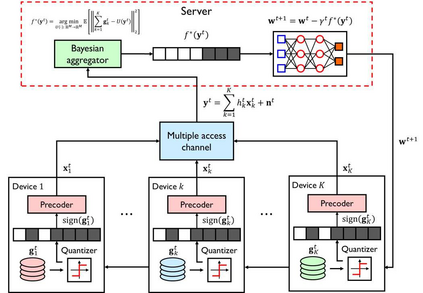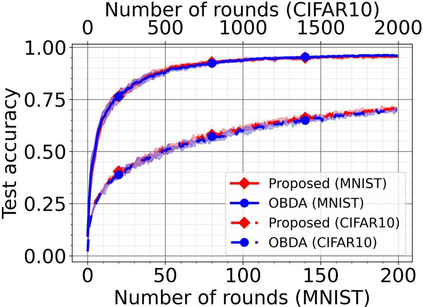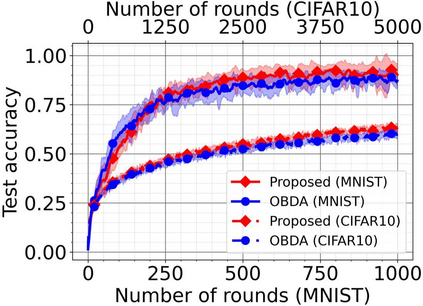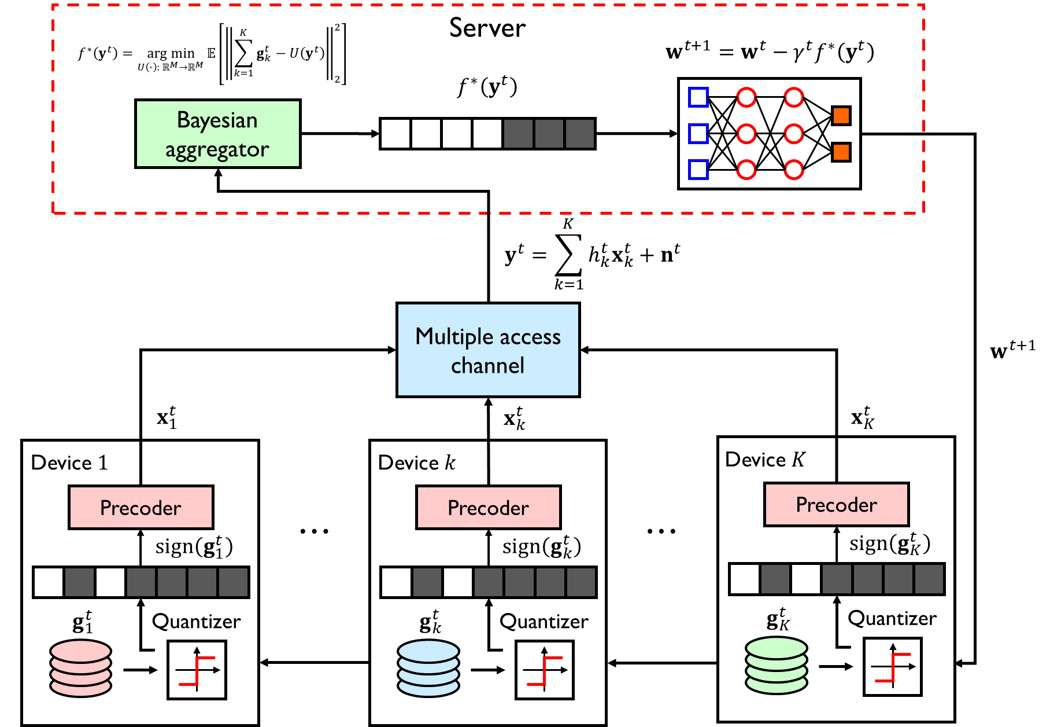In this paper, we consider the problem of wireless federated learning based on sign stochastic gradient descent (signSGD) algorithm via a multiple access channel. When sending locally computed gradient's sign information, each mobile device requires to apply precoding to circumvent wireless fading effects. In practice, however, acquiring perfect knowledge of channel state information (CSI) at all mobile devices is infeasible. In this paper, we present a simple yet effective precoding method with limited channel knowledge, called sign-alignment precoding. The idea of sign-alignment precoding is to protect sign-flipping errors from wireless fadings. Under the Gaussian prior assumption on the local gradients, we also derive the mean squared error (MSE)-optimal aggregation function called Bayesian over-the-air computation (BayAirComp). Our key finding is that one-bit precoding with BayAirComp aggregation can provide a better learning performance than the existing precoding method even using perfect CSI with AirComp aggregation.
翻译:在本文中, 我们考虑了基于信号随机梯度梯度下降( ign- SGD) 算法的无线联合学习问题。 在发送本地计算梯度标志信息时, 每个移动设备需要应用预编码来绕过无线衰减效应。 然而, 实际上, 在所有移动设备中, 获得频道状态信息的绝佳知识是行不通的。 在本文中, 我们提出了一个简单而有效的预编码方法, 其频道知识有限, 称为信号对齐前编码。 信号对齐前编码的理念是保护信号滑动错误不受无线衰减。 在高斯先前对本地梯度的假设中, 我们还得出了平均平方差( MSE), 称为 Bayesian 超空计算( BayAircomp) 。 我们的关键发现是, 使用 BayAirComp 集合的一比现有的预编码方法更能提供更好的学习性能, 即使使用完美的 CSI Comprecoting 方法 。









